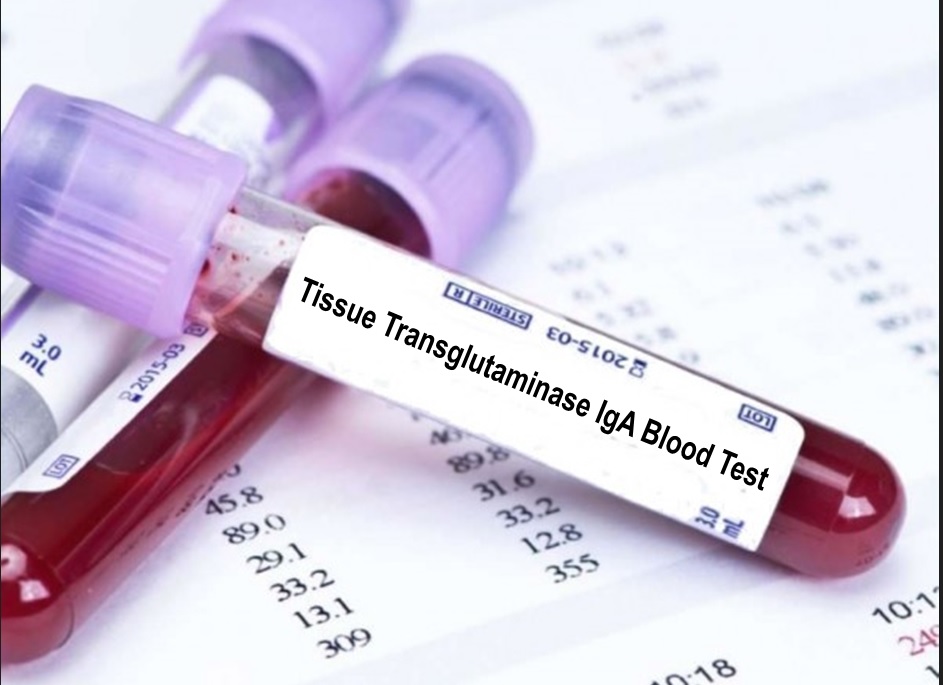
What are anti-transglutaminase antibodies (TTG IgG) and why is it tested for their presence in the blood?
Tissue transglutaminase (tTG) antibodies are part of the autoantibodies associated with coeliac disease
Why are tissue transglutaminase (tTG) antibodies important for coeliac disease?
Usually the IgA isotype is predominant, but IgG isotypes can also be produced, particularly if the individual is IgA deficient.
Coeliac disease is the result of an immune-mediated inflammatory process following the ingestion of wheat, rye or barley proteins, which occurs in genetically susceptible individuals and primarily affects the mucosa of the small intestine, leading to villous atrophy.
The most common clinical manifestations of coeliac disease include gastrointestinal abdominal pain, malabsorption, diarrhoea and constipation.
Other manifestations of the disease may be growth failure, iron deficiency, recurrent foetal loss, osteoporosis, chronic fatigue, recurrent aphthous stomatitis, dental enamel hypoplasia, dermatitis herpetiformis, and neuropsychiatric manifestations including ataxia and peripheral neuropathy.
The anti-transglutaminase antibody test is requested by the specialist when there is a suspicion of coeliac disease and to monitor compliance with the gluten-free diet in coeliac patients
The test has no diagnostic value.
A high level of anti-transglutaminase antibodies indicates probable coeliac disease and the need to investigate further by biopsy of the small intestine.
How is the test for anti-transglutaminase antibodies carried out?
The test is performed by taking blood from the arm.
The examination does not involve any preparation.
Please note that the results of the laboratory tests must be framed by the doctor, taking into account any medications taken, phytotherapeutic products and medical history.
Read Also:
Emergency Live Even More…Live: Download The New Free App Of Your Newspaper For IOS And Android
What Are The Symptoms Of Coeliac Disease In Adults And Children?
Adverse Drug Reactions: What They Are And How To Manage Adverse Effects
A Baby’s Gut Bacteria May Predict Future Obesity
Coeliac Disease: How To Recognise It And What Foods To Avoid
Symptoms Of Coeliac Disease: When To Consult A Doctor?
Coeliac Disease: Symptoms And Causes
Albumin Replacement In Patients With Severe Sepsis Or Septic Shock
Provocation Tests In Medicine: What Are They, What Are They For, How Do They Take Place?
What Is Albumin And Why Is The Test Performed To Quantify Blood Albumin Values?


